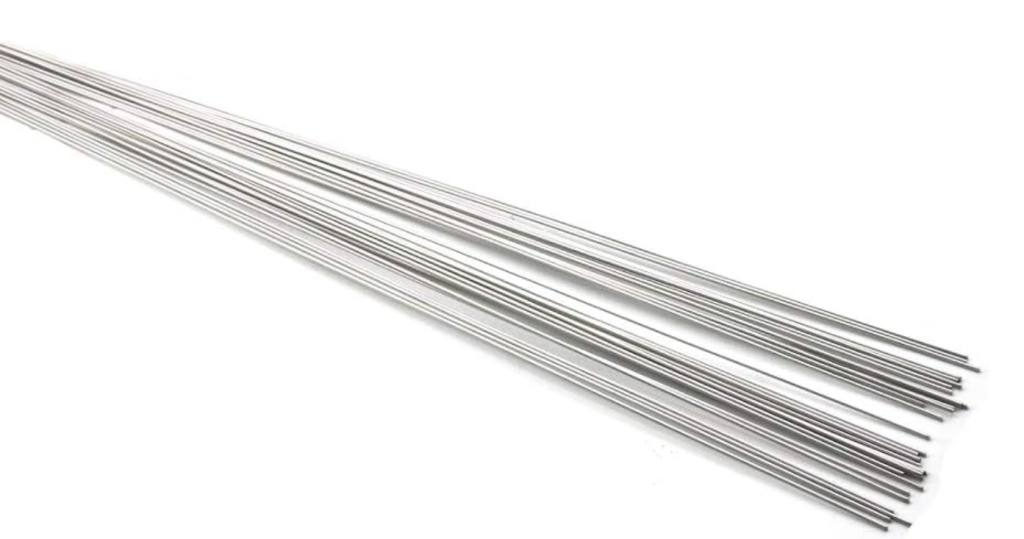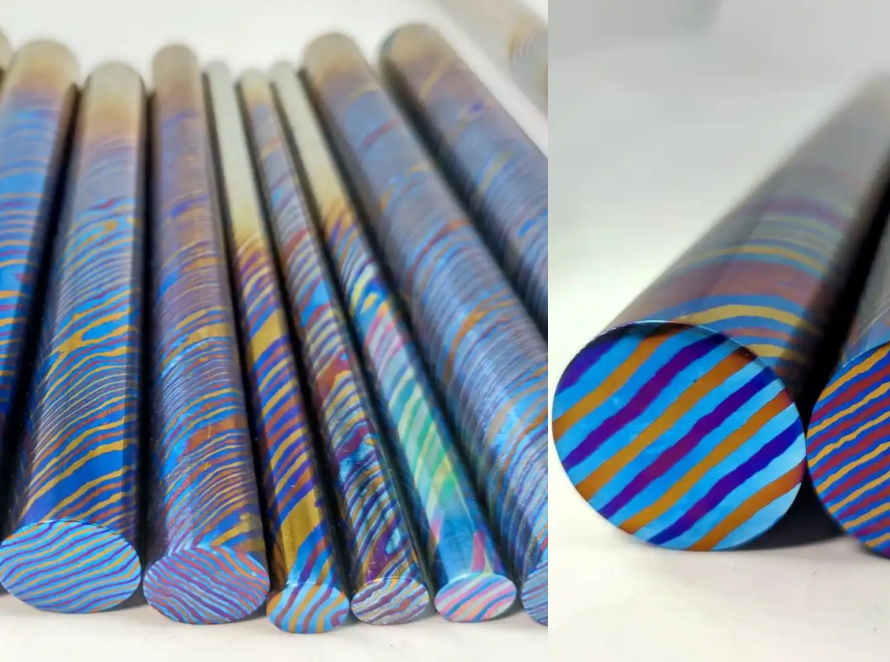
What Is Titanium Welding?
Titanium welding involves joining pure titanium or titanium alloy components through fusion or solid-state processes. Titanium’s melting point (1668°C) and high reactivity above 370°C mean the welding process must prevent contamination at all stages. The most commonly used methods are:
1. TIG Welding (GTAW – Gas Tungsten Arc Welding)
Uses a non-consumable tungsten electrode
Protected by 100% argon or argon-helium gas shielding
Ideal for thin sections (≤3 mm) and precision work
Produces clean, ductile, and corrosion-resistant welds
2. MIG Welding (GMAW – Gas Metal Arc Welding)
Utilizes consumable titanium wire electrodes
Suited for thicker sections (>3 mm)
Faster deposition rates than TIG
Requires careful handling to avoid arc instability due to oxide layers
Critical Factors in Titanium Welding
| Parameter | Details |
|---|
| Shielding | High-purity argon (≥99.999%) with trailing shields, backup purging, or inert gas chambers to prevent oxidation |
| Surface Cleanliness | Surfaces must be free of oil, oxide, dust, and fingerprints (mechanically cleaned + degreased) |
| Post-Weld Protection | Weld zone must remain shielded until the temperature drops below 800°F (427°C) to prevent embrittlement |
| Electrode Prep | Sharpened tungsten tip, typically 2% thoriated or lanthanated tungsten for arc stability |
| Welding Chamber | For highly reactive environments, welding inside an argon-filled glovebox or enclosure is preferred |
Additional Titanium Welding Methods
Laser Welding: Ideal for small, precision parts and minimal heat-affected zones.
Electron Beam Welding: Deep penetration welding in vacuum environments.
Friction Welding / Diffusion Bonding: Solid-state joining for dissimilar metals or high-strength joints.
Industry Applications
| Industry | Welded Titanium Applications |
|---|---|
| Aerospace | Engine nacelles, structural joints, hydraulic systems |
| Medical | Surgical instruments, implants, prosthetics |
| Chemical Processing | High-pressure vessels, heat exchangers, corrosion-resistant piping |
| Automotive & Sports | Lightweight frames, exhaust systems, performance parts |
| Marine & Defense | Submersibles, armor plates, naval connectors |
Ti Time Company – Titanium Welding Experts
As a full-service titanium supplier and manufacturer, Ti Time Company offers:
✅ Custom titanium welding services (TIG, MIG, laser, friction)
✅ Certified welders with experience in Grade 1–5, Grade 9, and Ti-6Al-4V ELI
✅ In-house CNC machining + welding + electropolishing for seamless integration
✅ ISO-compliant procedures for medical and aerospace-grade welds
✅ Global supply capability with strict quality control
FAQs – Titanium Welding
Why is titanium welding more difficult than steel?
Titanium is more reactive and easily absorbs oxygen and nitrogen at high temperatures, leading to brittle welds if not shielded properly. It requires inert shielding gas and clean environments.
What is the best welding method for titanium implants?
TIG welding under inert gas shielding is best for medical-grade titanium due to its precision, purity, and minimal heat-affected zones.
Can titanium be welded to other metals?
Direct welding to most metals like steel is not recommended due to intermetallic brittleness. Solid-state methods like friction welding with buffer layers are more suitable.
What are common titanium grades used in welding?
Grade 2 (CP titanium) for general use and Grade 5 (Ti-6Al-4V) for aerospace/medical are most common due to their strength and weldability.
Does Ti Time Company offer custom welded titanium assemblies?
Yes! We offer OEM welding services for aerospace, medical, marine, and custom industrial projects globally.


